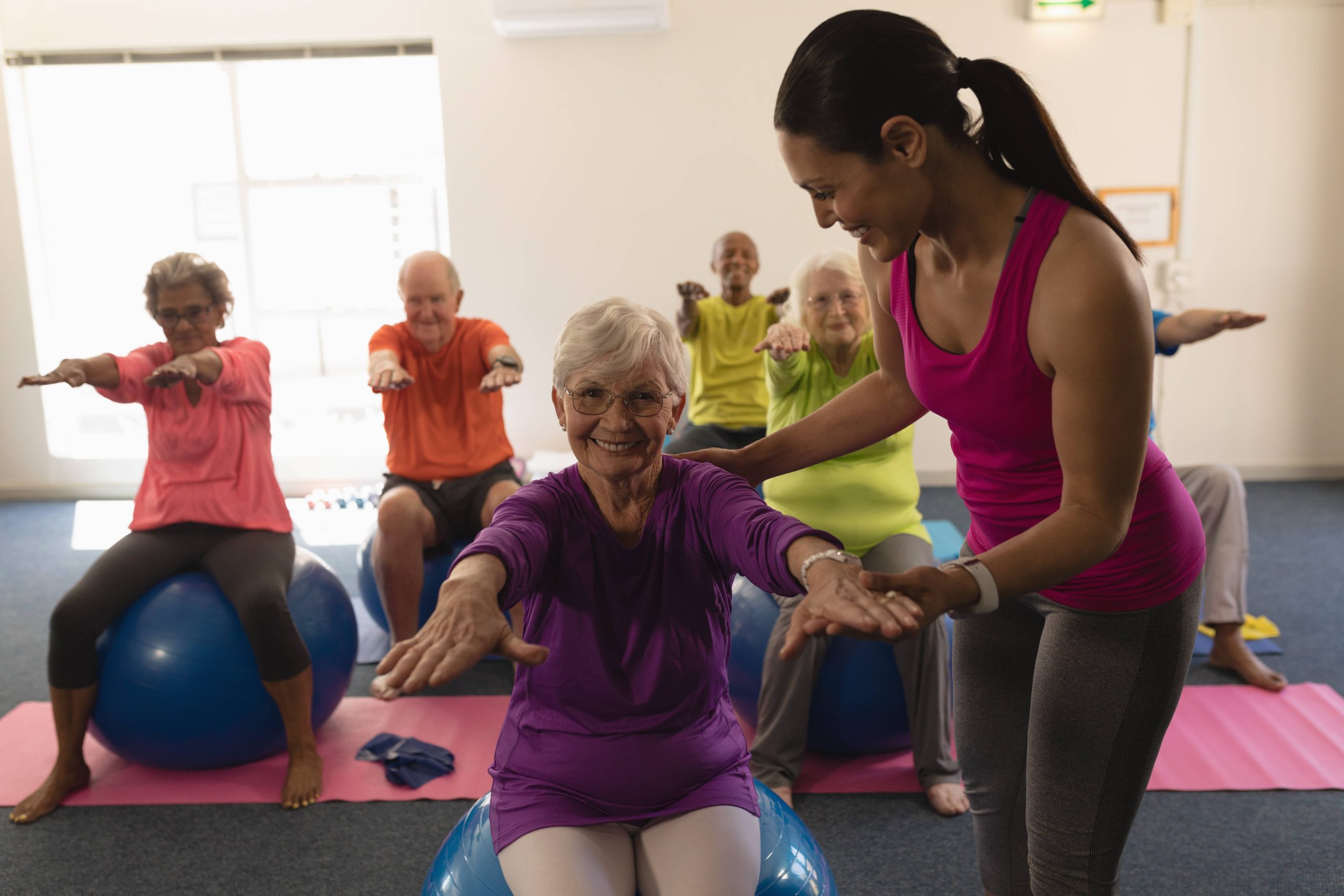
In the realm of health and wellness, the importance of tailored exercise programs has gained significant attention, particularly for the aging population. As we age, our bodies undergo a variety of changes that can affect mobility, strength, balance, and overall health. To address these changes effectively, a specialized professional has emerged in the fitness industry: the Medical Exercise Specialist (MES). In this blog post, we will explore who these specialists are, what they do, and how they can be beneficial for active aging individuals.
Understanding the Role of a Medical Exercise Specialist
A Medical Exercise Specialist is a fitness professional who has received specialized training to work with individuals dealing with medical conditions, injuries, or chronic diseases. Unlike general fitness trainers, MES professionals have the expertise to design and implement exercise programs that address specific health concerns while promoting overall well-being. Their goal is to use exercise as a tool to improve function, reduce risks associated with medical conditions, and enhance quality of life.
Training and Certification
To become a Medical Exercise Specialist, one must undergo rigorous training and obtain certification from an accredited organization. The American Academy of Health, Fitness, and Rehabilitation Professionals (AAHFRP) is one of the leading bodies offering certification programs for MES professionals. The certification process includes comprehensive coursework focused on anatomy, physiology, biomechanics, and exercise prescription for special populations.
The extensive training ensures that MES professionals are equipped to understand various medical conditions such as arthritis, osteoporosis, diabetes, heart disease, and more. They learn how to work collaboratively with healthcare providers to create tailored exercise regimens that complement medical treatments or rehabilitative efforts.
Exercise Prescription for Medical Conditions
The crux of a Medical Exercise Specialist’s work lies in their ability to design exercise programs that cater to specific medical needs. Here are some examples of how they can tailor exercises for different conditions:
1. Arthritis: For individuals with arthritis, maintaining joint mobility and reducing stiffness is crucial. An MES can create a low-impact exercise program that includes stretching, strengthening, and water-based activities to alleviate symptoms and improve joint function.
2. Osteoporosis: Weight-bearing exercises and resistance training are essential for individuals with osteoporosis to strengthen bones and reduce the risk of fractures. An MES can ensure the exercises are done safely to prevent injury.
3. Cardiovascular Diseases: For those with heart disease, cardiovascular health is paramount. An MES can develop a cardiovascular exercise plan that improves heart function while monitoring intensity levels to maintain safety.
4. Diabetes: Exercise plays a key role in controlling blood sugar levels. An MES can design a balanced program that includes aerobic and strength-training exercises, tailored to the individual’s fitness level and health status.
5. Balance and Fall Prevention: As we age, the risk of falls increases due to decreased balance and coordination. A Medical Exercise Specialist can incorporate balance and stability exercises to enhance proprioception and prevent falls.
The Benefits of Working with a Medical Exercise Specialist
Active aging is not just about maintaining physical activity; it’s about doing so safely and effectively. Here are some of the benefits of working with a Medical Exercise Specialist:
1. Personalized Attention: An MES takes a personalized approach to exercise, assessing each individual’s unique health status, fitness level, and goals.
2. Improved Functionality: By focusing on exercises that enhance physical capabilities, an MES can help individuals maintain or even improve their ability to perform daily tasks.
3. Disease Management: Regular exercise tailored by an MES can play a significant role in managing chronic diseases, potentially reducing medication dependency and improving health outcomes.
4. Injury Prevention: MES professionals are trained to minimize the risk of exercise-related injuries, which is especially important for older adults or those with existing health conditions.
5. Enhanced Quality of Life: The ultimate goal of a Medical Exercise Specialist is to enhance an individual’s overall quality of life. By mitigating health challenges and promoting physical activity, they enable their clients to live more vibrant, active lives.
The Collaborative Approach
A crucial aspect of the Medical Exercise Specialist’s role is their ability to collaborate with other healthcare providers. They often work alongside physicians, physical therapists, and other healthcare professionals to ensure a well-rounded approach to health and fitness. This interdisciplinary collaboration ensures that all facets of a client’s health are being considered, providing a comprehensive pathway to improved health and well-being.
Finding the Right Medical Exercise Specialist
If you’re considering working with a Medical Exercise Specialist, it’s important to find someone who is certified and experienced in dealing with your specific health conditions. Here are some steps to help you find the right MES:
1. Research Credentials: Look for certifications from reputable organizations such as the AAHFRP. These credentials reflect the professional’s expertise and commitment to maintaining high standards.
2. Check Experience: Ask about their experience working with clients with similar medical conditions or goals. A seasoned MES will have a portfolio of case studies or testimonials demonstrating their success.
3. Consultation and Assessment: Begin with a consultation and comprehensive assessment. This initial meeting will help the MES understand your health status and tailor a suitable exercise plan.
4. Communication Skills: A good MES should have strong communication skills, which are essential for interacting with clients and collaborating with healthcare providers.
5. Flexibility and Support: A supportive and adaptable MES can modify exercise programs as needed, ensuring that they remain effective despite any changes in health or fitness levels.
Conclusion
As we embrace the concept of active aging, the role of the Medical Exercise Specialist becomes increasingly vital. Their specialized skills and knowledge can bridge the gap between healthcare and fitness, allowing individuals to navigate the complexities of aging with confidence and grace. By incorporating exercise into their healthcare regimen, active agers can look forward to a future that celebrates vitality, independence, and well-being.
For those seeking to enhance their health journey, partnering with a Medical Exercise Specialist might just be the powerful ally you need to optimize your active aging experience. Whether dealing with chronic conditions or striving to maintain peak physical performance, these specialists offer valuable guidance and support on the path to a healthier and more fulfilling life.











